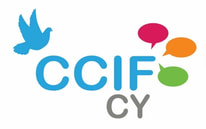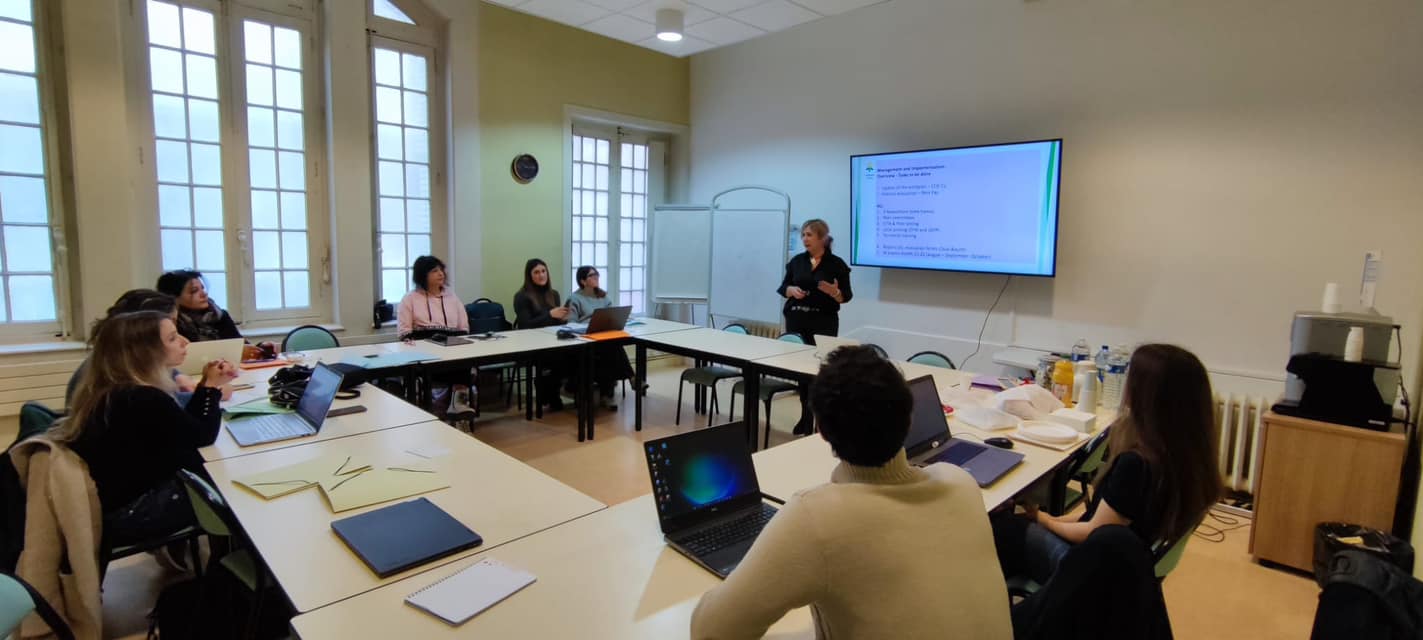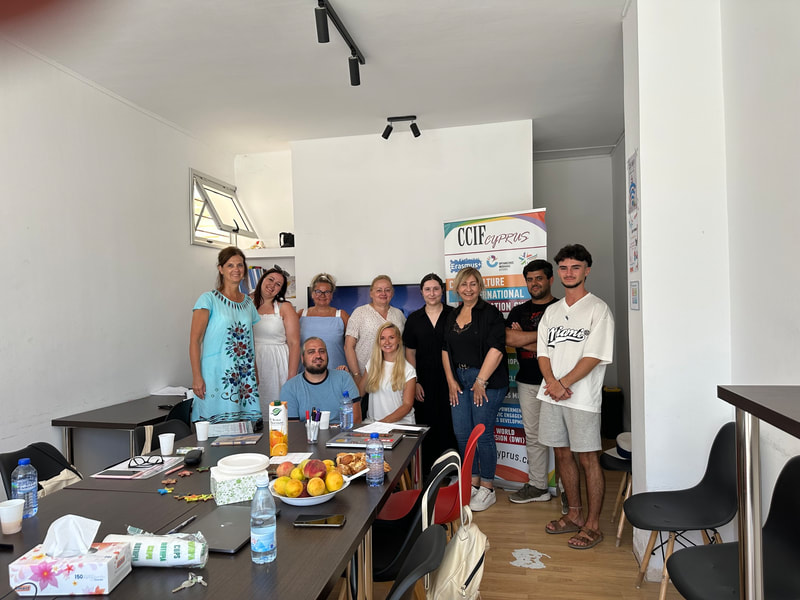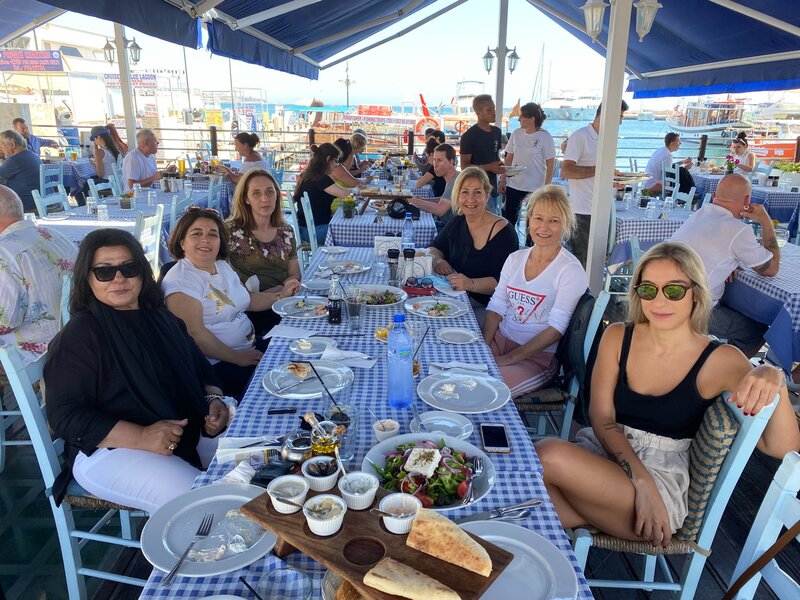DESCRIPTION:
Gamification takes elements from games — such as leaderboards, levels, or points — and adding them to lessons.
This approach makes lessons that might not be enjoyable more engaging for students.
Participants will work with tools for the creation of audiovisual resources (photos, movies, music clips, documentaries, news and their own videos) and other strong methods to teach their subjects in a more creative way.
The use of digital ressources become effective means to transmit knowledge, help students to absorb and retain ideas, and help in the development of communicative, critical, social and creative skills.
OBJECTIVES:
The course provides participants with:
- new solutions for the modernization of curricula;
- Digital tools and learning methods to improve Student's Success;
- New effective teaching methods;
- Digital game-based learning (DGBL) and gamification concepts for the classroom;
- Ways of teaching traditional school matters through different activities such as Digital Game Based Learning for delicate balance between in-class lessons and educational gameplay. Teachers introduce students to new concepts and show them how they work. Then students practice these concepts through digital games.
Learning Methods:
The courses follow a Non-Formal methodology in every domain, in order to promote the interaction between trainees and trainers. Different methods will be developed within the in-person sessions, giving special attention to the Case method, methodology based on project, learning by doing and the Interrogative one.
The basic methodology of the course is the flipped one. It means that trainees will work on the online platforms of CCIF Cy. It will be useful to download the learning and supporting materials, to participate in debate forums, to ask doubts, to interact with other colleagues, to complete the required tasks for evaluation, and to do the final self-assessment of their achievement theoretical questionnaires. The trainees will have access to the online platform at any moment to spend time of dedication. All this provision is completed with in-person classes, in which different activities are carried out to definitively integrate conceptual, procedural and attitudinal course content.
Methodology and assessment:
A communicative approach to language learning enhanced by using real contexts will help participants to develop their communicative skills in a very natural way.
Group and task-based activities, field projects and oral and written presentations will enhance participants’ learning experience.
Participants are encouraged to interact with each other and develop their communication skills in English while at the same time exploring and becoming part of a European dimension in education. That is why they will be encouraged to share their experience and ideas with other European colleagues.
The course is organized within the 4 priorities of Erasmus+:
- Inclusion and diversity;
- Digital Transformation, eg. ICT or STEM;
- Environment, climate change;
- Democracy in EU;
5 or 7 days course
1st Day - Arrival Day
- Welcome event with Ice-breaking activities-take a step ahead/Fun game
- How to benefit from Social Media in teaching and learning Discussion pros-cons
- Welcome dinner
2nd Day
- Course introduction
- Digital storytelling and creativity
- Creativity & comics
- Feedback, evaluation, reflection
3rd Day
- Photo and video making in the classroom for educational purposes. Adopt visual resources. Use of video editing
- Group Workshop for practical video creations for educational purposes
- Distinct balance in creating educational and fun learning for students
- Feedback, evaluation, reflection
- City stroll
4th Day
- Concepts of web design
- ICT teaching and Creativity. How to use games designed to teach or help students practice specific skills or content
- DGBL strategies in the classrooms and adjusting the lessons based on the feedback they receive from the software. Improvements in learning and grades.
- Feedback, evaluation, reflection
5th Day
E-classroom
- Let’s use digital tools in formal and non-formal education
- The influence of digital/Web wolrd
- Combining games with education in the form of game-based learning or digital game-based learning. Positive factors in improving engagement, motivation, and overall educational achievement
- Feedback, evaluation, reflection
6th Day
- Building learning scenarios. Learn by experience-Teamwork
- Blended learning classrooms that use both traditional lessons and digital game-based learning have the most effect on student learning
- How do we differentiate games that are appropriate for helping students learn in the classroom from those that are used purely for entertainment?
- Discover the roots of our ancient history
7th Day
- Space for discussion of future cooperation and planning follow up activities
- Feedback, evaluation, reflection
- Visit the archeological Park of Pafos
- Mini Cruise in the blue clear waters of Pafos (optional)
- Water sports (optional)
Course fees:
5 days 400 Euro per participant
7 days 560 Euro per participant
Fees are fully covered by your Erasmus+ grant. Traveling fares, accomodation and meals are also covered by your Erasmus+ grant. The course is also open to participants without Erasmus+ grants!
Validation: Certificates will be given to participants with a discription of the the training including a description and its lenght.
The competences acquired can be validated with Europass Mobility Certificate.
Venue
PAFOS, CYPRUS
Dates
06-10 August 2024
20-24 August 2024
16-20 September 2024
Accommodation and meals
Participants take care of booking their hotel. CCIF Cyprus will suggest some hotels with prices.
Accommodation, food and beverage are directrly paid by participants to hotels and restaurants.
Read our privacy policy
Read our privacy policy
Child Protection Policy of CCIF Cypruschild_protection_policy_of_ccif_cyprus.pdf





